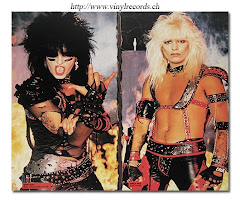When I was a little child many people thought that I am a boy because I was not dressed in little pink or red clothes. Especially, it happened during winter time when I was wearing a hat; thus nobody could see my hair. May be even my actions sometimes were like a boy’s; fighting, claiming trees and hanging out with boys, but my grandmother and girl friends always knew that my favorite game to play was dolls, Barbie and Ken. When I became little bit mature and grew up; I started to become more girly because I was hanging out with more girls, and I took dancing courses where all girls looked and act so ladylike; I wanted to be like them. Back home in Latvia that kind of girls are called “Cacas”, as I can say now that I was one of them. Even though, I started my javelin thrower’s sports career when I was eleven; I tried to do different things and one of them was a volleyball. I quit it after approximately two month; coach told me that it is not a really good idea to go and practice javelin throw because it is not a girly sport that I would become buffed. Moreover, volleyball was made for me; that I had a talent doing it. I did not listen to him and left volleyball; started to concentrate on throwing a javelin what happened at age fourteen and I have been doing it till now. I am glad that I picked the javelin throw; besides, yes, I am a little buffed, but it is not a problem for me.
Sunday, August 30, 2009
Subscribe to:
Post Comments (Atom)


The start of Kristine’s childhood shows some examples of the public’s use of gender attribution. By simply not wearing pink or red, she is labeled as a “boy” in her community. Yet even with these and other boyish characteristics, she still loved to play with dolls—something many may attribute as feminine. This is an interesting experience because it shows how sometimes children will not accept the things gender socialization might pressure a female to do.
ReplyDeleteAnother interesting part of Kristine’s experience is that it shows the battle between essentialism and social constructionism. It is clear that Kristine is good and loves to participate in javelin. This defies the essentialism theory by showing that women are biologically fit and able to enjoy a sport that involves great strength and other “masculine” traits. When approached by her coach to quit the sport and pursue something more feminine like volleyball, she realized that it was not for her. From Kristine’s experience, I am left thinking of the many times society has pressured me into doing something for the only reason of me being a male. Were these things actually right for me? Or are some of the more “feminine” activities things I could possible excel at?